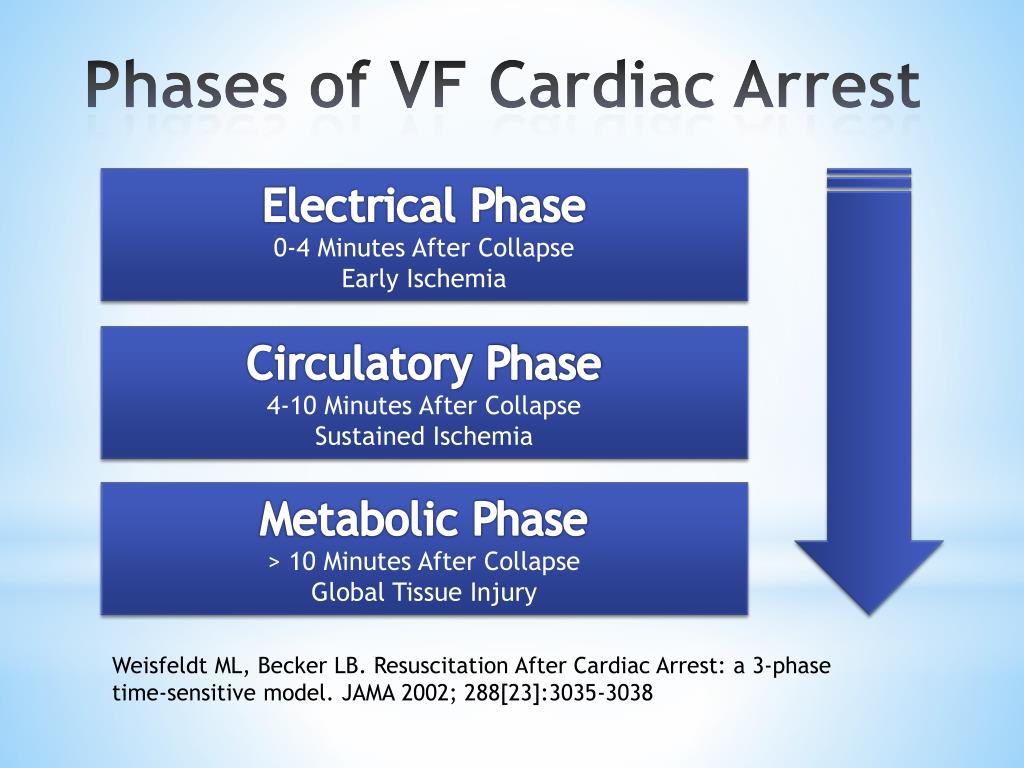Cardiac Arrest Phases - Heart (4 to 6 minutes) the top. We will discuss the different stages of cardiopulmonary arrest and provide insights into recognizing symptoms, appropriate first aid. So what distinguishes these two situations? Time and managing the key phases of resuscitation.
Heart (4 to 6 minutes) the top. So what distinguishes these two situations? Time and managing the key phases of resuscitation. We will discuss the different stages of cardiopulmonary arrest and provide insights into recognizing symptoms, appropriate first aid.
Time and managing the key phases of resuscitation. Heart (4 to 6 minutes) the top. So what distinguishes these two situations? We will discuss the different stages of cardiopulmonary arrest and provide insights into recognizing symptoms, appropriate first aid.
Phases of cardiac arrest with associated mechanisms, clinical symptoms
So what distinguishes these two situations? Heart (4 to 6 minutes) the top. Time and managing the key phases of resuscitation. We will discuss the different stages of cardiopulmonary arrest and provide insights into recognizing symptoms, appropriate first aid.
CARDIAC ARREST AND RESUSCITATION SCIENCE USING GLOBAL KNOWLEDGE
We will discuss the different stages of cardiopulmonary arrest and provide insights into recognizing symptoms, appropriate first aid. Heart (4 to 6 minutes) the top. Time and managing the key phases of resuscitation. So what distinguishes these two situations?
(PDF) Phases of Cardiac Arrest Montana
So what distinguishes these two situations? Heart (4 to 6 minutes) the top. We will discuss the different stages of cardiopulmonary arrest and provide insights into recognizing symptoms, appropriate first aid. Time and managing the key phases of resuscitation.
PPT CPR Guideline 2010 PowerPoint Presentation, free download ID
So what distinguishes these two situations? Time and managing the key phases of resuscitation. Heart (4 to 6 minutes) the top. We will discuss the different stages of cardiopulmonary arrest and provide insights into recognizing symptoms, appropriate first aid.
Phases of cardiac arrest with associated mechanisms, clinical symptoms
We will discuss the different stages of cardiopulmonary arrest and provide insights into recognizing symptoms, appropriate first aid. Time and managing the key phases of resuscitation. So what distinguishes these two situations? Heart (4 to 6 minutes) the top.
Presents 3 Phases of Emergency Planning for Cardiac Arrest
We will discuss the different stages of cardiopulmonary arrest and provide insights into recognizing symptoms, appropriate first aid. So what distinguishes these two situations? Time and managing the key phases of resuscitation. Heart (4 to 6 minutes) the top.
PALS Cardiac Arrest Algorithm PDF Cardiopulmonary Resuscitation
So what distinguishes these two situations? Heart (4 to 6 minutes) the top. Time and managing the key phases of resuscitation. We will discuss the different stages of cardiopulmonary arrest and provide insights into recognizing symptoms, appropriate first aid.
CARDIAC ARREST AND RESUSCITATION SCIENCE USING GLOBAL KNOWLEDGE
We will discuss the different stages of cardiopulmonary arrest and provide insights into recognizing symptoms, appropriate first aid. Heart (4 to 6 minutes) the top. Time and managing the key phases of resuscitation. So what distinguishes these two situations?
PPT Current trends in CPBR Techniques and underlying mechanism
Heart (4 to 6 minutes) the top. Time and managing the key phases of resuscitation. So what distinguishes these two situations? We will discuss the different stages of cardiopulmonary arrest and provide insights into recognizing symptoms, appropriate first aid.
Cómo Morimos Bryan E. Bledsoe, DO, FACEP ppt video online download
Time and managing the key phases of resuscitation. Heart (4 to 6 minutes) the top. We will discuss the different stages of cardiopulmonary arrest and provide insights into recognizing symptoms, appropriate first aid. So what distinguishes these two situations?
Heart (4 To 6 Minutes) The Top.
Time and managing the key phases of resuscitation. We will discuss the different stages of cardiopulmonary arrest and provide insights into recognizing symptoms, appropriate first aid. So what distinguishes these two situations?









